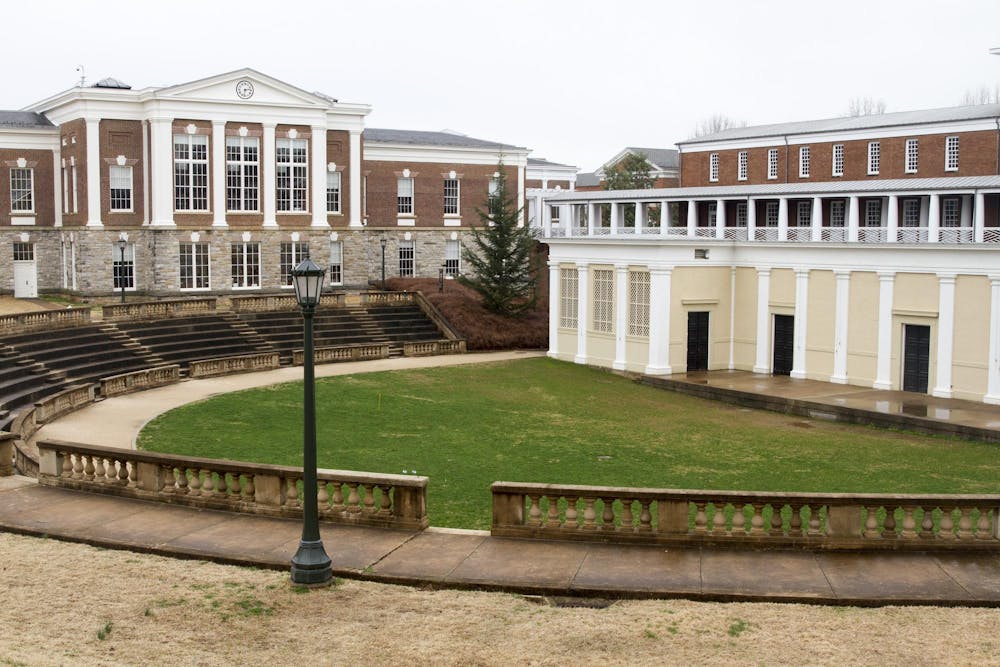The third ballot’s the charm, as they say in the University Board of Elections. Every October, first-year students participate in the New Student Elections — run by the UBE — by voting once on their representatives for Student Council and Class Council. But this year was different. This year, students had to vote three separate times as a result of serious administrative errors by UBE — the first ballot failed to list all candidates and the second did not offer ranked-choice voting which is guaranteed in the UBE constitution. To remedy the errors in the second ballot, UBE hosted an impromptu runoff election, which concluded earlier this month — and there is no doubt this chaotic run-off elections placed undue stress upon both candidates and voters. In this exceptionally visible failure at all levels, the UBE cast doubt upon its own capabilities as an organization which is supposed to protect student self-governance.
It is likely that you do not know exactly what the UBE is, nor how it operates within the context of the University. Neither do most students, leading to abysmal turnout for the majority of the elections that the UBE organizes. Let me try to explain the mission of the mysterious organization — the UBE’s role as a Special Status Organization is to support student self-governance on Grounds. The UBE runs and supervises each election for the major branches of student government at the University, including Student Council and Class Council. In addition to this, the organization also facilitates endorsements from other student organizations who advocate for student self-governance. Undoubtedly, this is no small task — the UBE governs the main democratic avenue through which student candidates and voters can express their unique concerns about the University.
In the chaos of New Student Elections this year, first-time voters were not properly introduced to this weighty mission of the UBE. Students were left unsure as to which ballots actually counted their vote, and the run-off only exacerbated concerns of legitimacy. In short, first-year students were thrown into a farce. If the UBE fails to supervise seven races in the fall, what does this demonstrate about their ability to conduct 44 in the spring? And how does this endanger the engagement of voters and candidates alike?
Ignoring these significant questions, the UBE has sought to reframe its abject failures as clear successes. In this way, they have not only failed to concretely deal with the failures, they have also begun to claim successes which are not their own. In discussing the election, Zach Lederer, the UBE chair and fourth-year college student, cited the fact that some of these runoff elections had higher voter turnout than their primaries. The UBE contends that its own voter encouragement campaigns had a role in increasing voter turnout and thus engagement with student self-governance. In reality, the increased voter turnout was likely the product of effective campaigning on the parts of students. In other words, by ignoring the chaotic and stressful circumstances of this election, the UBE attempts to identify a victory of the campaigning of student candidates as their own.
Such an overstatement of their role in increasing turnout not only undervalues the importance of passionate candidates but it also fantasizes about influence that UBE does not currently wield within the student body. In reality, an organization with such an allegedly significant voter encouragement campaign should not struggle to receive 20 likes on an important Instagram post, nor should it insecurely tout its own internal improvements amid scandal — yet, it does. The reality is that this year’s new student elections suggest that UBE is poorly run, and this poor management of UBE has an undeniably negative impact on voter turnout at the University.
The UBE remains an opaque vessel that is only biannually noticed for its flaws, seldom practicing outreach back into the student community. In order to troubleshoot the issues behind these elections, the UBE must perform an internal investigation. And in conjunction with this internal investigation, they should renew focus on external transparency. The fact that the University has a student-run electoral board should not be a surprise consigned to solely readers of The Cavalier Daily. Rather, the UBE must make a concerted effort to clarify not only their importance on Grounds, but also their status as an SSO — a living, breathing and student-run organization whom the University has entrusted to help safeguard the tradition of student self-governance.
This comedy of errors does not end on a light-hearted note. By butchering the first series of elections that first-year students are involved in, the UBE sets an unfortunate precedent for the legitimacy and importance of student elections writ large. As a vital element of the University’s spirit and activism, the reputation of student self-governance must not be tarnished by the flagrant and frequent oversights by the UBE. More must be done in order to protect these elections from disorganization — and protect the seriously promising examples of student governance within them. But first, the UBE must admit that they have a problem.
Scarlett Sullivan is a senior opinion columnist for The Cavalier Daily. She can be reached at opinion@cavalierdaily.com.
The opinions expressed in this column are not necessarily those of The Cavalier Daily. Columns represent the views of the authors alone.







